A Between the Lines Interview with First Thrills authors Lee Child, Steve Berry, Michael Palmer, Heather Graham, John Lescroart, and more
 by Brett King
by Brett King
It began as an alliance. When International Thriller Writers was formed in 2004, its promise rested on bringing together established novelists with emerging writers. As part of its brisk legacy, ITW has championed the work of new authors, a dedication that shines in the breakthrough publication, First Thrills: High-Octane Stories from the Hottest Thriller Authors. Forge Books released the critically acclaimed anthology for the first time in paperback on May 24, 2011.
Under the careful editorship of New York Times bestselling author Lee Child, First Thrills brings together original short stories crafted by seasoned authors to help showcase work from debut authors. “The idea was to sprinkle some major attractions in the shop window, to draw your eye,” Child notes about the participation of bestselling authors. “[They] all contributed stories—free, gratis, and for nothing, simply because they remembered their debut years and didn’t want to stand by idle. Among them, they sell many millions of books a year, and we think they brighten up the shop window enormously.”
Child joined with, alphabetically, Ken Bruen, Stephen Coonts, Jeffery Deaver, Heather Graham, Gregg Hurwitz, Alex Kava, John Lescroart, John Lutz, Michael Palmer, Karin Slaughter, and Wendy Corsi Staub. Their stories complement a promising group of thriller-writing talent including Sean Michael Bailey, Lise S. Baker, Ryan Brown, Bill Cameron, Rebecca Cantrell, Karen Dionne, J.T. Ellison, Theo Gangi, Rip Gerber, CJ Lyons, Grant McKenzie, Daniel James Palmer, Marc Paoletti, Cynthia Robinson, and Kelli Stanley. The result is a compelling blend of many of the best thriller writers working today.
First Thrills features stories that explore “fascinating moments where ordinary people face difficult choices between right and wrong,” says New York Times bestselling author Steve Berry, who wrote the book’s afterword. The anthology, he adds, contains “journeys to the dark territory of noir, where hope is a precious commodity, and there were some good old-fashioned, tried-and-true adrenaline-rush rides of danger and amusement.”
In a starred review, Booklist agrees that First Thrills is a “masterful collection” and calls it, “hands down one of the best short story collections you’re ever likely to read.” Suspense Magazine included the hardcover edition of First Thrills on its Best of 2010 List and several professional societies recognized individual stories. The Mystery Writers of America nominated Jeffery Deaver’s story, “The Plot,” for an Edgar Award. The Crime Writers Association nominated three First Thrills chapters for the 2011 CWA Short Story Dagger Award: Ken Bruen’s “Wednesday’s Child,” Bill Cameron’s “The Princess of Felony Flats,” and Michael Palmer and Daniel James Palmer’s “The Dead Club.” The May 2010 hardcover edition of First Thrills was an alternate selection for several prominent book clubs including Book of the Month Club, Mystery Guild, Rhapsody, Literary Guild, and Doubleday Book Club.
In addition to the paperback, Forge Books has released the original collection as four e-book volumes, each featuring an assortment of stories brimming with murder, mystery, and mayhem for just $2.99. The publisher has also made two of the stories available for free on the ITW website.
I talked with many of First Thrills’ contributors about writing short stories, the role that ITW has played in their careers as well as aspects of their individual stories. I began with Lee Child, asking how this project differed from a 2008 ITW book that also showcased a new generation of thriller authors.
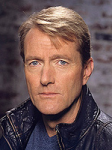 In addition to First Thrills, you edited the Killer Year anthology. Did you encounter different challenges while editing the two works?
In addition to First Thrills, you edited the Killer Year anthology. Did you encounter different challenges while editing the two works?
Lee Child: No, they were very much two versions of the same proposition—great stories full of energy and invention by a bunch of great debut novelists. In both cases my job was pretty much to stay out of the way.
How would the beginning of your career be different if ITW had existed when you were getting started with your first novel?
Steve Berry: I may well have been published sooner. ITW was born as a direct result of the resurgence of the thriller genre after the success of The DaVinci Code. That book brought the sub-genre of the international thriller back from the dead and opened up a lot of opportunities for folks like me who were trying to break-in during the 1990s to no avail. DaVinci changed all that and eventually (in 2004) led to Gayle Lynds and David Morrell’s decision to form the group.
Michael Palmer: With my primary career as a physician, and no real ambition to be a professional writer, chances are I would never have heard of ITW. However, my agent was and is in tune with most everything that is going on in the book biz. Chances are she would have steered me toward ITW. As it was, future ITW greats like Mary Higgins Clark and Clive Cussler endorsed The Sisterhood, so there’s a chance that more ITW members might have followed suit just as I do for new ITW writers today.
Heather Graham: I can’t even begin to imagine! I started out knowing no one—and nothing. ITW has come out like Superman, with the speed of a bullet, doing amazing things for authors. Debut authors, agent speed-dating! I can’t even imagine; just glad to be around now!
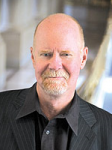 John Lescroart: I believe that everything in my early career would have been better if ITW had existed. The camaraderie and collegiality of all of us, the sharing of information (especially about publishers and agents), and the willingness of experienced hands to share would have probably kept me from making many of the mistakes that I did make—and believe me, I made most of them. I firmly believe that ITW would have changed everything.
John Lescroart: I believe that everything in my early career would have been better if ITW had existed. The camaraderie and collegiality of all of us, the sharing of information (especially about publishers and agents), and the willingness of experienced hands to share would have probably kept me from making many of the mistakes that I did make—and believe me, I made most of them. I firmly believe that ITW would have changed everything.
Lee Child: I was pretty lucky from the start, so I’m not sure if there would have been a substantive difference, but the first couple of years would have been a lot less lonely, I think.
How has ITW’s dedication to supporting new authors shaped your early career?
JT Ellison: As a founding member of Killer Year, I will always be greatly indebted to ITW for their interest in our little band of debuts. When MJ Rose approached us at the very first Thrillerfest (2006 in Phoenix) and wanted to sit down, we were beyond thrilled. MJ told us how impressed ITW was with our efforts, and offered to “adopt” Killer Year. We were able to work with mentors, to have our books blurbed by some of the most important names in the business, and of course, our group became the model for the current ITW Debut Author Program. Once our debut year was finished, we all worked together to find the right balance for new authors entering the publishing world for the first time, and now being a debut thriller author means you don’t have to go it alone. I wouldn’t trade that experience for the world.
Rebecca Cantrell: ITW has been invaluable to my career as a writer. I was part of the debut author program and received terrific support both from the program’s mentors (Lee Child and Steve Berry for my years) and from other debut authors. ITW’s promotional savvy and incredible generosity helped me learn how to make the leap from writer-with-a-book-contract to writer-with-a-career.
 Karen Dionne: ITW’s support has been a tremendous help to me. I was an early member of the Debut Authors program, so I had the privilege not only of benefiting from the program itself, but of helping to shape it internally as well. Also, when I first expressed an interest in serving on ITW’s Board of Directors, I didn’t yet have a contract for my second novel. I mentioned that to then co-president Steve Berry as a factor that might disqualify me, and he said, “Doesn’t matter. You’re a member.” As a board nominee, I was invited to sit in on the board meeting at ThrillerFest last July–a pinch-me moment if ever there was one. Picture me, a new author with one book published in mass market paperback, sitting at a table with Douglas Preston, David Morrell, Gayle Lynds, Steve Berry, Peter James, David Hewson, Carla Neggers, Jon Land and others, listening to these thriller luminaries discuss the organization’s needs and goals and tossing in my occasional two cents. It was an amazing experience, and proof that there’s room for everyone at the ITW table, no matter what stage they’re at in their career.
Karen Dionne: ITW’s support has been a tremendous help to me. I was an early member of the Debut Authors program, so I had the privilege not only of benefiting from the program itself, but of helping to shape it internally as well. Also, when I first expressed an interest in serving on ITW’s Board of Directors, I didn’t yet have a contract for my second novel. I mentioned that to then co-president Steve Berry as a factor that might disqualify me, and he said, “Doesn’t matter. You’re a member.” As a board nominee, I was invited to sit in on the board meeting at ThrillerFest last July–a pinch-me moment if ever there was one. Picture me, a new author with one book published in mass market paperback, sitting at a table with Douglas Preston, David Morrell, Gayle Lynds, Steve Berry, Peter James, David Hewson, Carla Neggers, Jon Land and others, listening to these thriller luminaries discuss the organization’s needs and goals and tossing in my occasional two cents. It was an amazing experience, and proof that there’s room for everyone at the ITW table, no matter what stage they’re at in their career.
Ryan Brown: I attended ThrillerFest for two years before my first novel was published, and the information and contacts I gained helped me immensely. ITW certainly recognizes the giants in the industry, but I admire that they place equal emphasis on helping new writers develop their careers. I was honored to be a part of the 2010 class introduced at ThrillerFest’s New Authors Breakfast. The fact that the event was so well attended is proof of the emphasis that ITW gives to new writers.
Daniel James Palmer: ITW has been an invaluable asset to my writing career. My two short stories were published in ITW anthologies, several ITW members gave blurbs for my debut thriller, and the friends I’ve made have given me a wonderful sense of community. I could not be more proud to be affiliated with such a fantastic organization.
Kelli Stanley: Joining the ITW Debut Author Program was the single most valuable thing I did before publication. It allowed me to learn about the industry within a supportive network of friends and colleagues, to meet writers at every level of publication, and to participate in the unique, dynamic and creative work ITW does for its members! I certainly wouldn’t have been able to achieve as much as I have without the help and support of the program and ITW itself.
Let’s talk about your process in writing novels versus short stories. In terms of narrative or character development, do you find one to be more challenging or enjoyable than the other?
Heather Graham: Short stories are harder! So much to say in so little space. Every word needs to count. Of course, it should with a novel, too, but the stakes are higher in a short story.
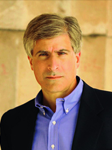 Steve Berry: They’re both tough. But if I had to choose, character development is tougher for me. It’s something I struggle with in every book. I spent a lot of time developing character. Hopefully, I’m getting better at it. For 2012 Cotton Malone is going to take a year off and I’m writing a standalone (the first one in 10 years). It’s a bit more character driven, more like my first three books (The Amber Room, The Romanov Prophecy, and The Third Secret) than the seven Cotton Malone stories (though there’s a lot of character development in those too).
Steve Berry: They’re both tough. But if I had to choose, character development is tougher for me. It’s something I struggle with in every book. I spent a lot of time developing character. Hopefully, I’m getting better at it. For 2012 Cotton Malone is going to take a year off and I’m writing a standalone (the first one in 10 years). It’s a bit more character driven, more like my first three books (The Amber Room, The Romanov Prophecy, and The Third Secret) than the seven Cotton Malone stories (though there’s a lot of character development in those too).
Lee Child: Personally I think I’m a pretty bad short story writer, so I find short stories infinitely more challenging on every count. I was amazed how good the contributors were in both my ITW anthologies, compared to me.
 JT Ellison: Short stories are sometimes harder for me than novels, simply because I have to decide which vignette of the characters’ story should be told. Shorts are by nature an exercise in media res, which makes for a daunting task. What to put in? Leave out? Is 5,000 words enough? Too little? Will it stand up to the other stories around it? (Many of the shorts I do now are specifically written for anthologies.) It’s stressful for me. Novels are much easier–I like experiencing the breadth and depth of the story, that languorous pace. I also always feel like something in the short needs to be surprising. Different. Unexpected. There’s a real art to managing those expectations in 20 pages or less, one that I’ve yet to master. And as I mentioned before, I use this form as a way to delve into other genres. My shorts tend to be very dark, either noir or supernatural, and, as such, quite cathartic for me. It’s a dumping ground for the fringes of my imagination, those little stories that don’t fit anywhere else.
JT Ellison: Short stories are sometimes harder for me than novels, simply because I have to decide which vignette of the characters’ story should be told. Shorts are by nature an exercise in media res, which makes for a daunting task. What to put in? Leave out? Is 5,000 words enough? Too little? Will it stand up to the other stories around it? (Many of the shorts I do now are specifically written for anthologies.) It’s stressful for me. Novels are much easier–I like experiencing the breadth and depth of the story, that languorous pace. I also always feel like something in the short needs to be surprising. Different. Unexpected. There’s a real art to managing those expectations in 20 pages or less, one that I’ve yet to master. And as I mentioned before, I use this form as a way to delve into other genres. My shorts tend to be very dark, either noir or supernatural, and, as such, quite cathartic for me. It’s a dumping ground for the fringes of my imagination, those little stories that don’t fit anywhere else.
Michael and Daniel, when we meet your protagonist from the “The Dead Club,” he’s on a gambling spree in Vegas. So, exactly how much research on blackjack and craps went into writing this story?
Michael Palmer: When I was younger and less responsible, I hied off to Vegas whenever possible. Writing about the casinos was as easy for me as writing about the E.R.
Daniel James Palmer: I’m really good at losing money whenever I gamble. For me, that part of the story was the easiest to write about.
Did you write short stories prior to writing your first novel? Would you recommend that new authors craft short stories before tackling a novel or does it not make a difference?
 Karin Slaughter: I started writing short stories in junior high. As a lifelong Flannery O’Connor fan, there was really nothing else for me to do. I think writing a short story takes a certain type of skill set that is very different from the tools needed to create a novel. To borrow from O’Connor, the thing that makes a short story good is not that it’s short, but that it’s a story. Some writers are great at it, and some are horrible. This is why I would never tell another writer what to do. I think you should write the story you want to write, and the length will sort itself out. For me, the most useful part of writing a short story is it teaches you to get to character and description immediately. You don’t have 500 pages, you have around 20 or 30. But, you really shouldn’t take 500 pages of a book to tell a reader who your character is, anyway.
Karin Slaughter: I started writing short stories in junior high. As a lifelong Flannery O’Connor fan, there was really nothing else for me to do. I think writing a short story takes a certain type of skill set that is very different from the tools needed to create a novel. To borrow from O’Connor, the thing that makes a short story good is not that it’s short, but that it’s a story. Some writers are great at it, and some are horrible. This is why I would never tell another writer what to do. I think you should write the story you want to write, and the length will sort itself out. For me, the most useful part of writing a short story is it teaches you to get to character and description immediately. You don’t have 500 pages, you have around 20 or 30. But, you really shouldn’t take 500 pages of a book to tell a reader who your character is, anyway.
JT Ellison: I wrote shorts as a kid, and in college, but when I started writing full time, I tackled novels first. I was fully convinced I couldn’t write short stories at all. My writing group kept pushing me to try, so I gave it a shot, sent it to Writer’s Digest Short Fiction contest and forgot about it. I was shocked to get the news it was the Honorable Mention winner. After that I was hooked. I wrote several shorts, focused mainly on flash fiction. The challenge of telling a whole story in less than 1,000 words really intrigued me.
Shorts are a different beast than novels. There are many novelists who can’t write shorts, and many short story writers who can’t write novels. I think storytellers will find the form that feels most comfortable to them, and once you do, you should focus your efforts there. But it’s not fair to push anyone into the “you must write and publish shorts to have a career as a novelist” bog. If you want to be a novelist, spend all your time writing the best novel possible. Shorts are playtime for me, and nine times out of ten I’m genre hopping. I like to get my freaky dreams out of my head.
Gregg Hurwitz: I did, though I also jumped into my first novel when I was quite young (and I shudder to think of how rough that first draft of the novel was!). While I think short stories are great because they’re more manageable for a fledgling author, a writer shouldn’t fool herself into thinking that they’re training wheels that can came come off and have her soaring her way into a novel. The only way to learn how to write a novel is to do so badly at first, making tons of mistakes, getting a rough draft out on the page, and rewriting, rewriting, rewriting.
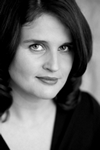 Rebecca Cantrell: I got one of my undergraduate degrees in creative writing, and the focus for fiction was the short story. It’s something that an undergraduate can finish in a semester, I think we had to do four short stories per class, so allowed me to work with different plots, characters, and description. It helped me to focus on my craft and finish projects and experiment before I settled into something with the scope of a novel. For me, it was a wise idea to start out with something smaller. That said, I wrote short stories for a few years when I should have been writing novels, so you have to know yourself enough to know when to make that leap.
Rebecca Cantrell: I got one of my undergraduate degrees in creative writing, and the focus for fiction was the short story. It’s something that an undergraduate can finish in a semester, I think we had to do four short stories per class, so allowed me to work with different plots, characters, and description. It helped me to focus on my craft and finish projects and experiment before I settled into something with the scope of a novel. For me, it was a wise idea to start out with something smaller. That said, I wrote short stories for a few years when I should have been writing novels, so you have to know yourself enough to know when to make that leap.
Ryan Brown: I did not write short stories before starting my first novel, but in hindsight I would suggest writing short fiction to any new author, including aspiring novelists. It forces a writer to tell a story as cleanly and directly as possible. One is forced to cut, cut, cut…to show and not tell, etc. It’s something from which every writer can benefit.
CJ Lyons: I actually find writing short stories more difficult than a novel. The only short story I’d written before “Scutwork” was “Toxicity,” a prequel to my Angels of Mercy series that my publisher used for promotion.
John Lutz: I wrote many short stories, not a few of them unpublished, before turning to novels. While this experience isn’t necessary for everyone, I think it helps a novelist to possess short story skills. It’s useful to be able to pack as much information into as few words as possible, without seeming to do so.
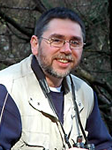 Bill Cameron: I think of short stories and novels as two different beasts. For years, I only wrote novels, mostly because I found it very difficult to restrain myself. Every tale I told branched and bifurcated such that I not only found myself unable to write short stories, I was unable to write short novels. I always had great admiration for writers who could crystallize a moment into a short story. Even now, with a number of shorts to my credit, I find the form a far greater challenge than novels. As for what I would recommend to new writers, I’m not sure one form leads to the other, nor do I feel writing short stories is somehow an apprenticeship to novels.
Bill Cameron: I think of short stories and novels as two different beasts. For years, I only wrote novels, mostly because I found it very difficult to restrain myself. Every tale I told branched and bifurcated such that I not only found myself unable to write short stories, I was unable to write short novels. I always had great admiration for writers who could crystallize a moment into a short story. Even now, with a number of shorts to my credit, I find the form a far greater challenge than novels. As for what I would recommend to new writers, I’m not sure one form leads to the other, nor do I feel writing short stories is somehow an apprenticeship to novels.
Kelli Stanley: Short story and novel writing are very different…the first is like painting in miniature; the second is like working on a giant fresco. The only short story I wrote prior to writing Nox Dormienda, my debut novel, was a horror tale penned in my sophomore year of high school…I wrote screenplays prior to Nox though, and that experience was enormously helpful.
I do think all novelists should at least try to write a short story. Nothing teaches you word count awareness better than short story writing. For me, they act as “palate-cleansers” between books, a writing hors d’oeuvre of sorts. Plus, for the Miranda Corbie series, it allows me to refine my protagonist’s back story, as I did with “Children’s Day” in First Thrills.
Lee, in an interview with The Independent last year, you were quoted as saying that you prefer to write “spontaneously, without prior thought, blindly.” Does that writing process work as well in the cramped universe of a short story as it does in your novels?
Lee Child: It has to, because that’s the only way I can work. That said, I usually have a complete idea for the skeleton of a short story—I know the twist or gimmick from the start—which makes the process feel different. With a novel, I’m flying blind all the way.
In your time as a reader, what short story has made the biggest impression on your writing career?
John Lescroart: The single most important short story for me and my career was Shirley Jackson’s “The Lottery.” The stunning and totally unexpected ending thrilled me beyond imagining when I first read it, and probably became the unconscious template of what a thrilling short story should try to accomplish.
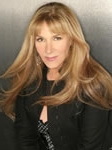 Heather Graham: The first short stories I remember reading were those by Edgar Alan Poe—and I fell in love. I think “The Tell-Tale Heart” was one I find the most brilliant because it’s so taut and eerie—and it’s all in the character’s head. I think he definitely made the biggest impression on me, as far as short stories go.
Heather Graham: The first short stories I remember reading were those by Edgar Alan Poe—and I fell in love. I think “The Tell-Tale Heart” was one I find the most brilliant because it’s so taut and eerie—and it’s all in the character’s head. I think he definitely made the biggest impression on me, as far as short stories go.
Lee Child: I have in the back of my mind a story by Ruth Rendell—can’t remember the title, or where it was. In the first half, a sequence of entirely innocent actions became very sinister in the second half after a woman was found dead. Beautifully constructed. I really want to find it again, even if I have to re-read Ruth’s considerable body of work.
JT Ellison: Without a doubt, “Hills Like White Elephants” by Hemingway. Heartbreaking, masterfully formed, incredibly evocative, and classically underwritten, it blew me away when I was nineteen, and nothing has ever affected me as much since. It’s sheer perfection. (Excuse me a moment. I must go read it again….Oh, it’s still so, so good.)
Karen Dionne: I’m a big fan of the O. Henry-esque ending, and have tried to incorporate that final unexpected twist in every short story I write. Because of that, I was particularly pleased when a reviewer called my First Thrills story, “a terrific tale, with the coldest ending line I have read since the last novel by Richard Stark.” When I read that, I did one of those fist-pumps in-air. Yesss!
John, Booklist described your short story, “The Gato Conundrum,” as a “fine spy thriller that moves through Italy, England, Russia, France, and the U.S., all in 20 pages.” What was the biggest challenge in executing your story on such an ambitious scale while keeping the length within the confines of a short story?
John Lescroart: The biggest challenge in “The Gato Conundrum” was keeping my tongue firmly embedded in my cheek as I watched these pages and locations pile up. I don’t think I’ve ever had more fun writing anything, and I’m delighted that people seem to think this comes through on the page.
Because of constraints on character development, does dialogue play a more critical role in a short story than in a novel?
John Lutz: Dialogue does play a critical role in a short story. It not only has to help drive the narrative, it also is one of the best ways to draw character, plant clues, foreshadow, create mood…all while sounding natural.
 Kelli Stanley: Not necessarily. It really depends on the kind of short story you’re writing, the narrative structure, the point and theme of the piece. What hones dialogue better than anything else, though, is writing a play or screenplay. Because the camera (or set design) carries the visual information, the only way you can bring a character to life is through dialogue and bits of business…no exposition to fall back on.
Kelli Stanley: Not necessarily. It really depends on the kind of short story you’re writing, the narrative structure, the point and theme of the piece. What hones dialogue better than anything else, though, is writing a play or screenplay. Because the camera (or set design) carries the visual information, the only way you can bring a character to life is through dialogue and bits of business…no exposition to fall back on.
Bill Cameron: I see character development in short stories as being more about archetypes than the exploration of some broader character gestalt. That means both dialog and narrative have to work in a kind of shorthand. In a novel, we have the room to range through backstory and to examine character interactions over time or in multiple situations. In stories, we have to cut through to foundational details. That can and should, I believe, happen in both dialog and narrative.
Rebecca Cantrell: I don’t think you get to slack off in a novel either. In both forms, dialogue can be critical.
Ryan Brown: I use dialogue when I need to get across a lot of information, but don’t want to bog down the reader or slow down the narrative. I’d say that my work is pretty dialogue heavy…and it plays an equally critical role in both my short and long fiction.
CJ Lyons: Both dialogue and action—the character needs to show their personality and hint at their character arc from the first time they step onto the page. At the same time, the author needs to build the world of the story and reveal any necessary backstory.
Heather, your short story, “When Johnny Comes Marching Home,” tells the grisly story of a Confederate soldier’s anticipated return home and the challenge of war for the “women who wait.” What is the biggest challenge that you’ve discovered in writing historical fiction?
Heather Graham: There’s always a tremendous challenge because even when you visit a site, it’s not the site as it was on any particular day in history. But I love history, and with the five children, for years, we traveled up and down the east coast, and went to dozens of Civil War re-enactments. The era is so heartbreaking. Today, we can’t even begin to imagine slavery—owning another human being? How crazy! But as we still see in the world today, depending on where we grew up, we can certainly have different beliefs that will twinge the mind toward any direction; often, poverty is what creates hatred, and allows the mind to twist. But in the Civil War, though there were examples of horrible behavior, most men still believed in honor and the conventions of war. When people ask about the “historic” dinner you could have, I always think that I’d love to sit down with Lincoln and Lee. To me, both were extraordinary men. Lee didn’t want secession, but in his day and age, he was a Virginian first. Lincoln was hated by his own contemporaries sometimes, but he held the course, and we can be what we are today—never perfect, but with the government founded that allows us to be vocal, whine, get active, and make change.
Rebecca and Kelli, what is your biggest challenge in capturing the feel of an era? How do you bring alive an historical moment for your readers?
Rebecca Cantrell: First, I do a staggering amount of research. For A Game of Lies, I researched the Olympics to the point where I can tell you how much fescue seed was used in the grass of the Berlin Olympic stadium in 1936 (25%). Then, once you’ve learned all that, you need to not cram it down your readers’ throats. I try to write my books as if they were written in the 1930s and the manuscripts were just now found in an attic somewhere. That means that I can’t call attention to one single thing that my characters would not call attention to. I can’t blather on about the cost of a dress unless my character is buying one. She won’t describe a subway seat in any great detail unless she notices it for a particular reason. I’m in her head, and her head is firmly planted in the 1930s.
Kelli Stanley: Probably the biggest challenge to writing historicals is to win emotional investment from your readers. So many people think of the past as over and done with, forgotten and unimportant, and that’s an attitude I hope will change. History is actually alive…it’s a part of who we are now, and why!
I personally dislike the “travelogue” style of historical fiction. I don’t like obvious explanatory phrases inserted into the mouths of character or in the narration. So I thrust my readers in the middle of it all, and try to bring the time and place alive for them with sensory references…sounds, smells, sights, the details of everyday life. I’m obsessed with making the setting as real as possible. If I believe it, so will my readers. So I use real business names, real phone numbers, street addresses, and above all, hope that they connect emotionally with the lives I’m depicting.
The Art Deco era was both amazingly beautiful and horrifically brutal. I try to write about the past as it was and how people lived it, capturing both sides of the story. So much of what we think about the ‘30s and ‘40s was shaped by film—and the censorship that shaped the film industry. In fact, that’s another challenge I face: writing the past so that people recognize it, but writing the truth, uncensored, about the era.
Karen, you have been praised for the painstaking research in your novels, a trait that is on display in your short story, “Calling The Shots.” How do you know when to include relevant information and when to leave out other facts?
Karen Dionne: When it comes to research, the most important thing to keep in mind is that the story always comes first. Facts and details are great, but only as long as they serve the needs of the story.
Are there challenges in collaborating on a short story? How do you divide up responsibilities?
John Lutz: The chief challenge is to make the styles mesh into a third style. This takes lots of revision, and collaborators who won’t be at each other’s throats.
Michael Palmer: Evelyn Waugh is quoted as saying that two people collaborating on a novel is like three people trying to collaborate on a baby. Actually, we did very well working together and talking over plot points. Not surprisingly, our imaginations are quite in sync. I contributed medical stuff to “The Dead Club,” and Daniel chipped in with everything cyber. He did most of the primary writing and I did the rewriting. Finally, we read the story out loud together. It really was great fun, and virtually without stress. Take that, Evelyn Waugh.
Daniel James Palmer: It’s easy when you realize that one writer has seventeen New York Times bestselling novels to their credit, while the other writer has none. Thankfully, Pops is very easy going and he believes in my ability as much as I believe in his. It works best when both writers come at it from a place of mutual respect.
Karin, in your short story, “Cold, Cold Heart,” you tackle human cryogenic freezing with wicked delight. What inspired you to write about this subject?
Karin Slaughter: Unlike the majority of my work, the idea comes from a real life event. The brother of a very good friend of mine developed terminal cancer. The man was brilliant, and kind of crazy but also a very loving brother. The sort girls with brothers who give them Indian burns and fart in their faces dream about. Anyway, this guy chose to be cryogenically frozen after death, and my friend is the type of person who thinks that a death wish should be fulfilled. So, when it became clear that these were his last days, she sat a death vigil with the cryogenics people, filling Ziploc bags with ice and waiting for her brother to die so that they people could chop off his head, stick it in a Styrofoam cooler and drive it back to Arizona, where the facility is. This was a horrible thing for my friend to have to go through—very secretive, because even in California it’s illegal to cut off someone’s head this way, but also very burdensome because she had to do it in private without the rest of her family in attendance. But she loved her brother so much that she was willing to do it. When I started thinking about the story, I had envisioned writing it as a testament to the kindness and generosity of this friend, but no one really cares about kind and generous people. They’re great—and unusual—in life, but they suck in fiction. So, I had to put my own little Slaughter Twist on it.
What is the most interesting thing a reader has said to you?
Gregg Hurwitz: I had a reader talk with me at length once about losing his sister into a cult, and the discussion inspired me to go undercover into a mind-control cult and write a thriller about it.
Karin Slaughter: I find it interesting when I am at an event and someone makes a point to come up to me and say, “I don’t read.” I just don’t understand (1) what they are doing in a bookstore and (2) why that admission doesn’t cause them great shame and despair. There are many people out there for whom reading is an impossible task because of a disability or the fact that they work three jobs just to keep their head above water. To proudly say, “I don’t read,” making it clear that it’s a choice, just baffles me.
John Lescroart: As to the most interesting thing a reader has said to me (besides asking me where the bathroom is at so many signings I’ve attended): “I don’t believe you’re making this stuff up. I was at Sam’s Grill the other day and I swear I saw Hardy and Glitsky having lunch together, arguing about a case, in one of the booths.” (I think this is pretty good because I’ve never physically described Hardy!!!)
Lee, would Jack Reacher have a favorable impression of the protagonist in your short story, “The Bodyguard?”
Lee Child: I think so. Like Dirty Harry, Reacher thinks a man should be aware of his limitations.
Aside from telling a compelling story, what is the most critical thing that a writer should strive for when crafting a short story?
Kelli Stanley: Diction. Making each word count. Your space is limited, so you really have to be conscious of your goals. Most readers expect a “switch” at the end—a common short story element. Making sure that the story works—that it follows the classic pattern of climax and denouement, and provides a satisfying catharsis in miniature for your reader—is more important than a “surprise” ending.
CJ Lyons: Tension. The pace should keep the reader racing to read to the end of each line, each paragraph, each page. Short stories are more about evoking a specific emotion in the reader. The author needs to connect the reader immediately to the character and bring them on board a carnival ride hurtling towards that target emotion.
Ryan Brown: Short stories require as much structure as longer works. For my taste, a short story shouldn’t read like a scene pulled out of a novel. It still needs a beginning, middle and end. Still needs character arcs. I structured my short story the same way I structure my novels…I just had to throw all my punches much more quickly!
Gregg Hurwitz: Honesty. Finding that moment that connects with a reader, that makes fiction as truthful as real life.
Wendy Corsi Staub: Fast pacing. You cannot afford to get bogged down in narrative or extraneous characters or dialogue when you have to develop and resolve a compelling conflict in just ten or twenty pages.
Bill Cameron: I see short stories as capturing an essential moment. Everything is brought back to its barest essentials. To me, the process is about avoiding the lure of sub-plots, character reflection, and focusing instead on a specific target. Short stories are more in the moment than novels, which gives them an urgency and immediacy which can be particular powerful when done well.
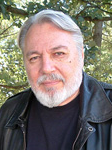 John Lutz: Everything is in some way related to everything else in the short story, and everything is dedicated to narrowing the focus to a single point. Most writers think good short stories are more difficult to write than good novels. I think they’re right.
John Lutz: Everything is in some way related to everything else in the short story, and everything is dedicated to narrowing the focus to a single point. Most writers think good short stories are more difficult to write than good novels. I think they’re right.
I wrote a short intro to one of the many great stories written by the late Stanley Ellin that will appear soon in Alfred Hitchcock Mystery Magazine. The intro begins, “When people ask me how to write a short story, I advise them to read one by Stanley Ellin.” I’m convinced that’s the best advice I can give.
Did you find your creativity pushed or rechanneled in new directions while writing your short story for the First Thrills anthology? If so, how?
Gregg Hurwitz: Yes, very much so. In “The Thief,” I wanted to play with the notion of an unreliable narrator—who is trying to be reliable, but can’t because he’s got severely limited mental capabilities. And so the mystery and plot and solution are brought to the story by the reader, who has to figure out what is really going on from the limited descriptions given by my narrator. It was quite challenging to construct, like building a puzzle.
Wendy Corsi Staub: I have published more than seventy novels since I last wrote short stories (over twenty years ago, in college writing workshops). When I sat down to write “In My Father’s Eyes,” I found the short story writing process much more challenging than I ever remember it being, probably because I’m accustomed to having 100,000 words to sufficiently develop a well-rounded cast of characters and a complex plot. This was a classic case of so much to do, so little time!
Bill Cameron: With “The Princess of Felony Flats,” I was attempting an infusion of a fairy tale with a hardboiled sensibility. The challenge was to balance the humor of the fairy tale allusions and archaic language with a gritty crime story. Go too far in one direction or the other, and the story collapses under the weight of its own absurdity. On top of that, it needed to be a crisp, tightly plotted story which would stand up on its own merits. The result is, for me, a story of which I’m particularly proud.
CJ Lyons: Absolutely. “Scutwork” is much edgier than any of my other work. It was fun to explore my dark side!
Karin Slaughter: The story that appears in First Thrills was first optioned as an audio work for BMW. They did those cool films several years ago, and they wanted to do short stories that were downloadable online as well as given away on a fancy CD when you bought a BMW in North America. So, for the $50,000 base model price, you got a free short story! Hurray! At any rate, the story of the story is that I already had it in my head, and I told BMW I wasn’t going to tell them what it was about (they could read it for themselves when I finished) and I wasn’t going to change any content, and they said okay. Which is a nice way to approach a project with a corporation. Surprisingly, they were true to their word. It was a lovely experience from a business standpoint, and a testament to the corporate desire to encourage art and creativity, but I just really looked at it as a good excuse to write a story I’ve been meaning to write. I love short stories, but it’s hard for me to find time to work on them because of my touring and the fact that I have to deliver a book every year. It seems kind of self-indulgent because when I write short stories, they’re generally just for my own peculiar enjoyment. So, when Lee asked me for a story, and I wanted to give him one but I didn’t have time for a new one, I thought this might be a good opportunity for my little BMW project. It’s the first time “Cold, Cold Heart” appears in print, and I’m very excited to see it in the collection.
John Lutz: This was the first story I did with Lise. Her style is not so unlike mine in some ways. In other ways we are quite different. I enjoyed getting into how she writes and learning how to use it to augment my style. Of course, she was doing the same thing with me. That’s the way it works. I think we were both pleased with the result.
Lise S. Baker: While working steadily on my full-length fiction, I decided to try monthly out-of-the-box projects. This could range from attending a graphic comic convention, reconnecting with fellow writers or pushing the writing frontiers of my abilities with non-fiction articles, short stories etc.
John Lutz had inspired my first published full-length book, The Losers’ Club. When I finally got up the nerve to contact him years ago, we became friends and he has mentored me from time to time with writing tips and advice. Writing the short story with John initially developed from a monthly out of the box project/idea. Once completed, it sparked a further idea of a spin-off from the short story for a full-length book! (I had always dreamed of having our two fictional detectives meet). John begged off due to prior writing commitments, but I forged forward. I applied for a grant from Mystery Writers of America and it was awarded to me! I took off for Key Largo and did on-site research. What a tough gig!
It is was creatively exhilarating to have our short story characters appear off-page, so to speak, in a larger work. There is a chapter in the book where the protagonist sees a car leaving and it is from the short story narrative. Great creative fun! The resulting completed book is now at a major publisher for consideration.
Kelli Stanley: Well, I knew I wanted to write a Miranda Corbie story, and I’d just finished City of Dragons. So I was still in Miranda’s head, so to speak, and the challenge was to find the appropriate story vehicle for the length of story I needed. When I’m in need of inspiration, I head out into San Francisco…which is Miranda’s city, after all. This time I chose Fisherman’s Wharf, and it was actually over an excellent dish of crab pasta at one of my favorite small Italian restaurants there that the idea for “Children’s Day” came to me. We were sitting under a painting of a crusty old fisherman, and I think he helped me!
The second push was in making the change from the novel-sized canvass to the short story form. Miranda is a very complex character, and my challenge was to preserve that complexity within a much briefer context. Having to do so made me aware of more of her history…parts of her past that hadn’t come up in the first novel, but which were clearly there. So writing “Children’s Day” definitely gave me a deeper understanding of her, her back story, and even of the setting (the 1940 San Francisco World’s Fair).
Ryan Brown: I think it’s dismissive (and downright wrong) to say that writing short fiction is any easier than writing long fiction. I found writing my story for First Thrills extremely challenging, but also very rewarding. Again, it proved to be an excellent exercise in writing with brevity. I have no doubt it changed the way I approach my long fiction.
Lee, in your novels, “Reacher said nothing” has become a signature line that almost produces a Pavlovian conditioned response (without the salivation!) in Reacher Creatures. From time to time, as in “The Bodyguard,” you give the “said nothing” tag to another character. When you first crafted the line, did you have a sense that it would become such a revered phrase for your readers?
Lee Child: The line was designed simply as a kind of pause or rhythmic punctuation, plus as a way of characterizing Reacher as a quiet man who doesn’t speak unless he’s got something worth saying. But you’re right, it has become a signature, and it makes me smile every time I type it.
What is one thing that you never question about your writing?
Steve Berry: Why I do it. A little voice in my head has driven me forward since the beginning. All writers have that same little voice. I may hate the thing, since it can drive you crazy, but I never question it.
Karen Dionne: I question everything. Always. It’s the only way to improve.
John Lescroart: This is a trick question, right? There is nothing I don’t question about my writing. I believe in my skills and experience and ability, but once I have finished putting down my words, I am always questioning everything from my word choices to my plot decisions. I think we all tend to fall into familiar rhythms with our work, and this tendency can quickly lead to a predictable voice and a fallback to jargon. So I question everything. But…and this is an important point…I don’t do that until I’ve finished my draft of whatever it is I’m working on. It’s critical to me that I allow myself to go into “genius mode” while I’m in the act of writing, where I tell myself that everything I’m doing is brilliant and groundbreaking. It’s only when I’m done that I go into “idiot mode,” wondering who wrote the dreck I’m reading, and questioning any and every little thing that appears on the page.
Lee Child: I never, ever, revise or change the opening paragraph. That’s always draft one.
Heather Graham: I just seriously thank God daily! I love what I do. I get to be nosy, travel, do bizarre things—and call it research. I get great new books to read for quotes, and see some of the stars of the future before others. I dare question none of it!
*****
 Brett King is an award-winning psychology professor at the University of Colorado at Boulder. His debut novel, THE RADIX, appeared in May 2010. New York Times bestselling author Jeffery Deaver calls it, “A topnotch thriller! Part Da Vinci Code, part 24, The Radix is roller-coaster storytelling at its best.” The second book in the series, THE FALSE DOOR, will be released On November 15, 2011. King is currently writing his third novel.
Brett King is an award-winning psychology professor at the University of Colorado at Boulder. His debut novel, THE RADIX, appeared in May 2010. New York Times bestselling author Jeffery Deaver calls it, “A topnotch thriller! Part Da Vinci Code, part 24, The Radix is roller-coaster storytelling at its best.” The second book in the series, THE FALSE DOOR, will be released On November 15, 2011. King is currently writing his third novel.
- A Between The Lines Interview with Andrew Peterson by Brett King - March 31, 2014
- Between The Lines Interview with Lisa Scottoline by Brett King - October 31, 2013
- Between the Lines Interview with Erica Spindler by Brett King - July 31, 2013
